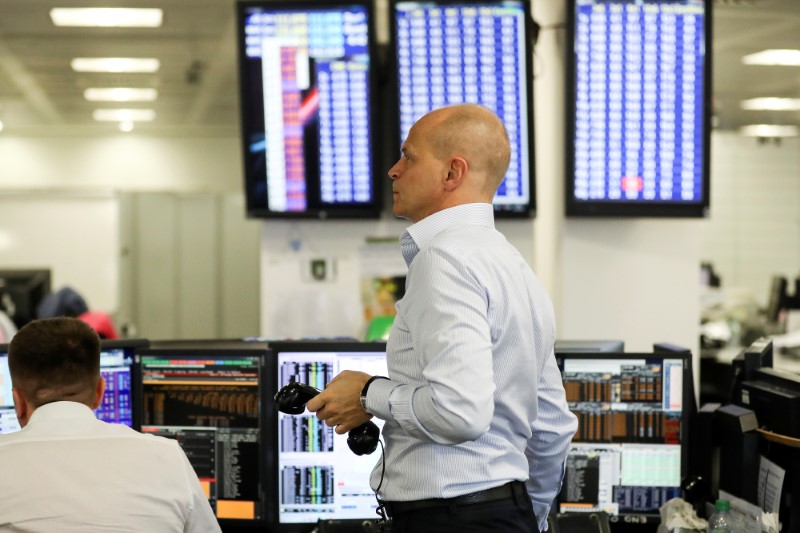(Bloomberg) -- Foreign investors in Vietnam stocks are shrugging off the threat of additional U.S. tariffs on the country’s exports, even as the Southeast Asian manufacturing hub draws increased scrutiny from President Donald Trump’s government.
Robust economic growth and the government’s planned sale of stakes in state-controlled companies will offset dips in equity prices triggered by trade frictions, according to investors including Federico Parenti at Sempione Sim SpA in Milan.
“I didn’t change my view,” said Parenti, who helps manage about $3 billion including Vietnam equities at Sempione Sim in Milan. “When you invest in a country, you do it for the long term.” Vietnam Dairy Products JSC and Saigon Beer Alcohol Beverage Corp. are among the firm’s holdings.
Foreign investors have poured $843 million into Vietnam’s $191 billion stock market in the 12 months through Aug. 14, even as the benchmark Ho Chi Minh Stock Index fell about 0.9% in the period. The gauge has climbed 9.7% so far this year through yesterday’s close, the most among Southeast Asian markets and outpacing the 0.8% rise in the MSCI AC Asean Index.
The government’s sale of shares in state-enterprises helped raise about 5.16 trillion dong ($222 million) in the first half of this year, adding to a record $5.09 billion from initial public offerings last year. Corporate tax breaks, along with economic expansion exceeding 6%, “augur well for the capital market,” said Mark Mobius, who runs Mobius Capital Partners LLP.
To be sure, most investors can’t ignore the risk of the U.S. increasing duties on Vietnam goods, said Felix Lam, who manages close to $2 billion in Asia Pacific equities at BNP Paribas (PA:BNPP) Asset Management. While Lam doesn’t hold Vietnam shares as turnover is too low for his mandate, he said an increase in liquidity could allow him to buy the stocks.
READ: Vietnam Won the U.S.-China Trade War But Is Now in Trouble
“If trade negotiations take longer and are more severe, then Vietnam will be affected alongside other Asian countries,” said Lam. Still, he added, “one would expect that companies would have captured quite a lot of that in their share prices already.”
The Trump administration has been increasing pressure on Vietnam to reduce its growing trade surplus with the U.S., including increasing to 400% in July the duty on steel imports that it alleges originated in Taiwan and South Korea. Exports to America equaled 20% of gross domestic product last year and almost 26% in the first half of 2019.
For Bharat Joshi, who helps oversee $650 billion as a fund manager at Aberdeen Standard Investments, Vietnam’s domestic demand outweighs risks arising from trade tensions. The firm counts Vietnam Dairy Products as an “anchor investment” in the country.
“There is structural growth happening on the ground, you have rising middle-class income, demand for credit is starting to expand, and the government is doing all it can to privatize,” said Joshi.
